Study finds metformin reduces COVID-19 viral load, viral rebound

A simulator developed by Prof. David Odde and his team was used in a phase 3 randomized clinical trial published in Clinical Infectious Diseases.
UMN undergraduate wins award for brain cancer research

Kyra Boorsma Bergerud, an undergraduate student at the University of Minnesota, won a poster prize at the 2023 Cellular Cancer Biology Imaging Research’s (CCBIR) Annual Investigators Meeting.
C-MITIE hosts national cancer imaging research meeting
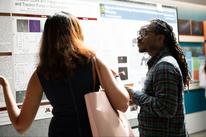
More than 85 people from around the country attended the meeting, which featured a keynote from Dr. Teng-Leong Chew, four scientific sessions, poster presentations, a hosted dinner for meeting participants at Owamni, and bodystorming with the Black Label Movement, a Minnesota dance company.
Study shows metformin lowers the risk of getting long COVID

A simulator developed by Prof. David Odde and his team was used in a large, placebo-controlled randomized clinical trial published in The Lancet Infectious Diseases.
High-throughput innovation accelerates cellular mechanotype assessment
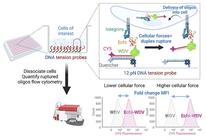
A team of researchers led by Wendy Gordon, a Cancer Bioengineering Initiative faculty member, developed a new high-throughput biosensor assay, Rupture and Deliver Tension Gauge Tethers (RAD-TGTs), that determines the amount of force a single cell exerts on its surroundings or its mechanotype.
Shapeshifters: Can buildings behave like organisms?

The project — which includes Prof. David Odde — reimagines the convergence of architecture and biology to understand how organisms create internal structures.
New grants to better understand tumor microenvironments
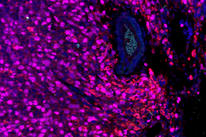
The National Cancer Institute (NCI) has awarded two R01 grants to Kaylee Schwertfeger, PhD.
Schwertfeger aims to define phenotypes and functions of macrophages, a key cell type within the tumor microenvironment that contributes to tumor progression. This could help scientists develop more effective therapies for solid tumors.
How University of Minnesota scientists use disease simulators to evaluate potential treatments

Think of it like a flight simulator, but on a microscopic level.
Instead of practicing landing a plane in different kinds of weather, David Odde and his team run simulations that test how diseases like cancer will respond to different kinds of treatment.
Computer simulator helps steer COVID-19 clinical trial toward promising treatment
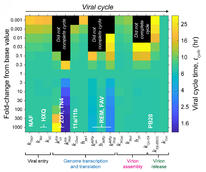
To help figure out which COVID-19 treatments might work best, a University of Minnesota clinical trial deployed a unique tool: a computer simulator.
The biophysics-based model simulated the disease on a molecular and cellular level so the trial team could screen potential treatments computationally long before they were given to participants.
New collaborative research center to provide clearer image of tumor microenvironment
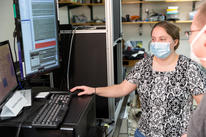
“So instead of imaging that takes cells out of the natural context and puts them flat on glass, we want to look at environments that are more natural and we want to be more holistic in our imaging, where we track the microenvironment plus all the cell types, not just the cancer cells themselves.”
— Kevin Eliceiri
$6.7 million grant received to develop quantitative imaging methods
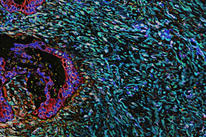
Researchers from the University of Minnesota and the University of Wisconsin-Madison have kicked off a research endeavor to develop novel quantitative imaging methods that will enable deeper study of tumor-immune microenvironment mechanics.
$9.6 million grant received to accelerate new cancer immunotherapeutics
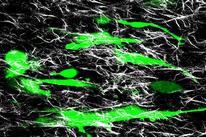
A biophysics-based tumor simulator will be developed by faculty at the Department of Biomedical Engineering at the University of Minnesota, thanks to a P01 grant from the National Cancer Institute.
The award builds on the work of the Physical Sciences in Oncology Center—an engineering-based oncology research center led by the department—and the department’s expertise in cancer bioengineering.